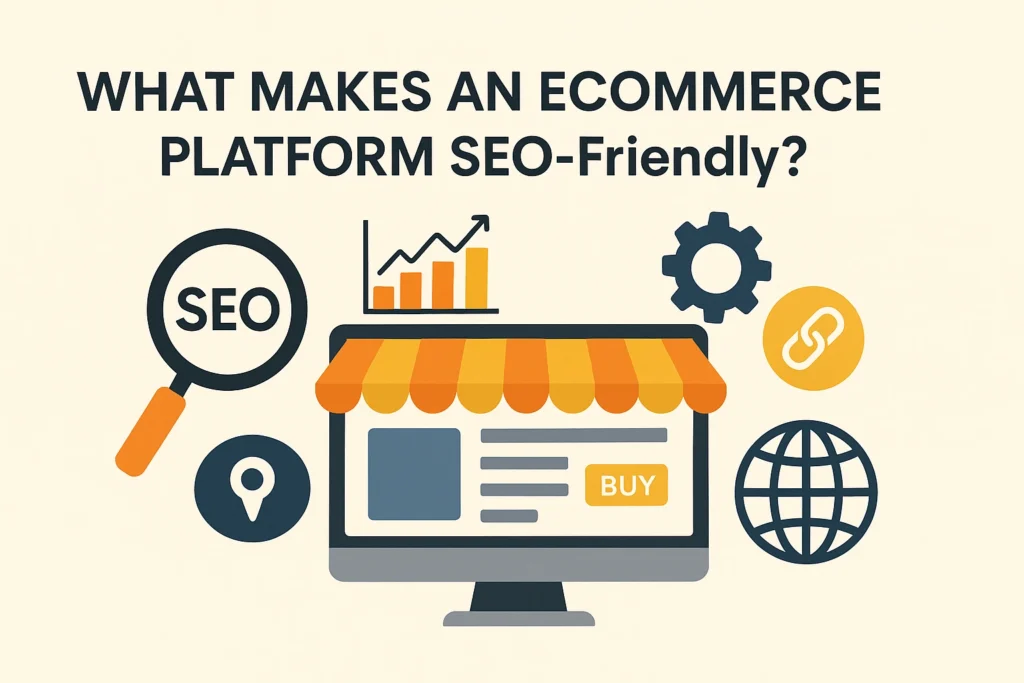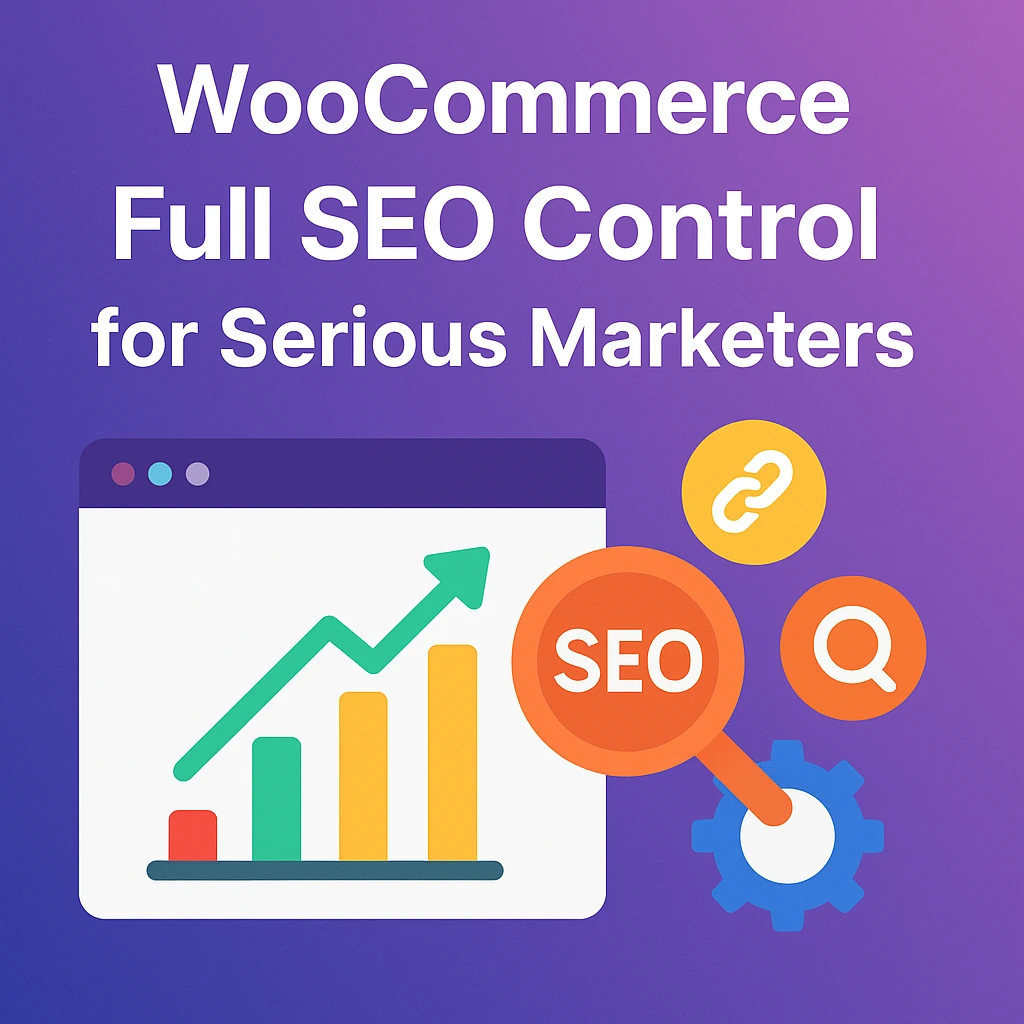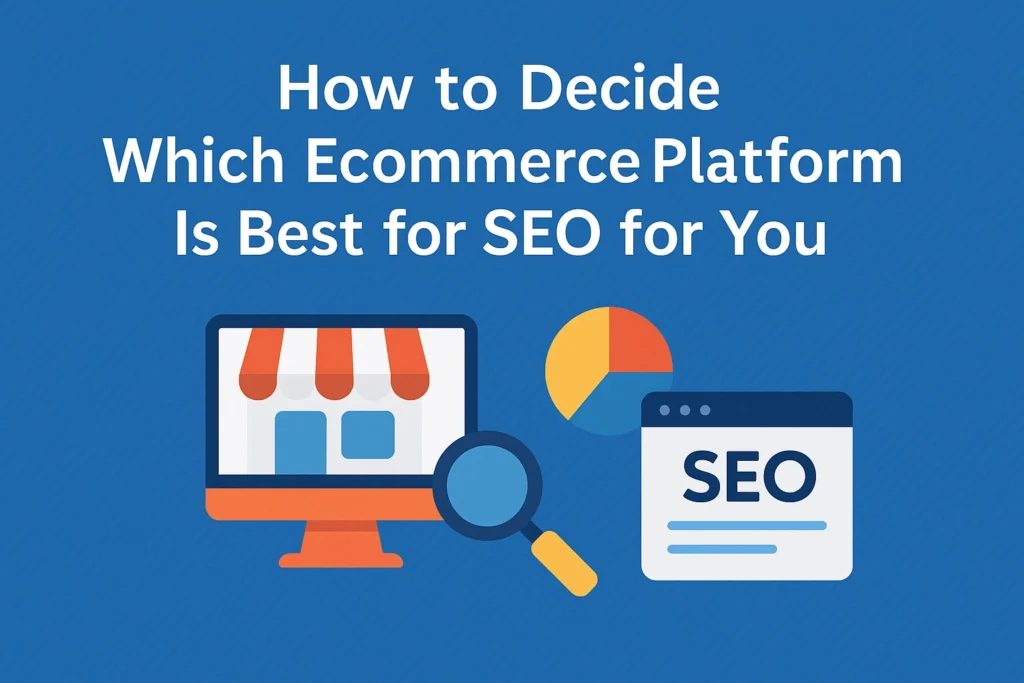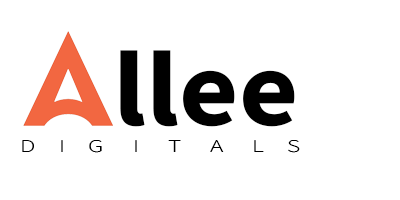When starting an online store, many focus on the design, products, or marketing. But one of the most critical decisions that impact your store’s success is choosing which ecommerce platform is best for SEO. This choice influences how easily your website ranks on Google, how much organic traffic you get, and ultimately how many sales you generate without paying for ads.
In this comprehensive guide, we’ll explore the SEO strengths and weaknesses of the top ecommerce platforms. By the end, you’ll understand which platform fits your business needs and SEO goals perfectly.
What Makes an Ecommerce Platform SEO-Friendly?
Before comparing platforms, it’s important to understand the SEO elements that matter for ecommerce.

Key SEO Features to Look For
An SEO-friendly ecommerce platform must let you customize meta titles, descriptions, and URLs for products and categories. It should support mobile optimization, fast loading speeds, SSL security, and provide clean, crawlable code. Structured data support (schema markup) is also essential for rich search results.
Good SEO platforms integrate well with tools like Google Analytics and Search Console and allow content marketing through blogging or landing pages.
Knowing this will help answer which ecommerce platform is best for SEO for your unique needs.
Shopify and Its SEO Advantages
Shopify is hugely popular among startups and small businesses. But how does it perform from an SEO perspective?
Shopify: User-Friendly SEO Features with Some Limits
Shopify automatically creates XML sitemaps and supports HTTPS, which is essential for security and rankings. Its themes are responsive, making your store mobile-friendly—a major ranking factor. You can edit meta titles, descriptions, and alt texts easily for SEO basics.
On the downside, Shopify restricts URL structure flexibility by adding default prefixes like /products/ and /collections/. This can dilute SEO value as clean URLs matter for search engines. Also, Shopify limits advanced SEO customizations like schema markup without third-party apps.
Still, for entrepreneurs prioritizing ease of use, Shopify offers a solid SEO foundation out of the box. Plus, understanding entity-based SEO strategies can further boost your rankings; see our guide on entities for details.
WooCommerce: Full SEO Control for Serious Marketers
For those who want maximum SEO flexibility, WooCommerce is often considered the best answer to which ecommerce platform is best for SEO.

WooCommerce: Unmatched Customization with SEO Plugins
WooCommerce is a WordPress plugin that turns your site into a powerful store. Its biggest advantage is full control over SEO elements. With plugins like Yoast SEO or Rank Math, you can customize every meta tag, schema markup, and URL. This level of detail lets you optimize your site precisely for search engines.
WooCommerce also supports blogging within the same site, allowing content marketing strategies that improve your organic reach. However, the responsibility for hosting, security, and performance lies with you or your developer team.
If you want to improve SEO effectively, conducting an SEO audit is vital. Our guide on SEO audit costs explains what to expect and budget for.
BigCommerce: Scalable SEO Features for Growing Stores
BigCommerce is an excellent option for businesses planning to scale while keeping SEO in mind.
BigCommerce: Powerful Built-in SEO Tools
BigCommerce offers features like automatic XML sitemaps, AMP (Accelerated Mobile Pages) support, and editable URLs with fewer restrictions than Shopify. Its clean codebase makes sites fast-loading, and it supports schema markup for rich snippets.
BigCommerce’s drawback is limited blogging tools, which may force you to use a separate CMS for content marketing. But for stores focused on product sales and clean SEO, it is a solid choice.
Magento: Advanced SEO for Large Enterprises
Large corporations often ask which ecommerce platform is best for SEO when they need advanced, enterprise-level features.
Magento: Highly Customizable but Requires Technical Expertise
Magento supports multilanguage SEO, detailed structured data, and extensive URL control. Its advanced SEO features can handle complex site architectures and international markets.
The catch is Magento requires skilled developers to manage its complexity. It’s not ideal for small businesses but excellent for enterprises with dedicated technical teams.
Wix Ecommerce: Simple SEO for Small Stores
Wix is often chosen by beginners wondering which ecommerce platform is best for SEO if ease of use is their main concern.
Wix: Basic SEO Improvements but Limited Control
Wix now includes SSL, meta tag editing, mobile optimization, and 301 redirects. These are enough for simple stores.
However, Wix limits access to advanced SEO customization, which may hinder growth for businesses needing rich snippets, detailed schema, or complex content marketing.
Comparing the SEO Strengths of Ecommerce Platforms
| Platform | SEO Customization | Ease of Use | Scalability | Best For |
|---|---|---|---|---|
| Shopify | Medium | Very Easy | High | Beginners, small stores |
| WooCommerce | Very High | Medium | High | SEO-focused, content-driven |
| BigCommerce | High | Medium | Very High | Growing businesses |
| Magento | Very High | Hard | Enterprise | Large-scale, technical teams |
| Wix | Basic | Very Easy | Low | Small, simple stores |
How to Decide Which Ecommerce Platform Is Best for SEO for You
Your choice depends on several factors:

- If you want maximum SEO control and content flexibility, WooCommerce is your best bet.
- If you prefer quick setup and ease, Shopify gives you a good start with solid SEO basics.
- For scaling with built-in SEO tools, BigCommerce is a strong candidate.
- For complex, international stores, Magento is ideal but needs developer support.
- For simple, small stores, Wix can suffice but with SEO limits.
Always plan your SEO strategy around your business goals and technical capacity.
For more insights on digital marketing, visit Alleedigitals.
FAQs About Which Ecommerce Platform Is Best for SEO
Which ecommerce platform ranks best for SEO?
WooCommerce is often considered the top choice because of its flexibility and compatibility with powerful SEO plugins. It allows you to control meta tags, URLs, schema markup, and content marketing seamlessly.
Is Shopify good for SEO?
Shopify covers essential SEO features such as mobile optimization, SSL, and editable meta tags. However, it has some limitations, especially in URL structure customization and advanced technical SEO settings.
Can BigCommerce help large stores with SEO?
Yes, BigCommerce provides scalable SEO features like AMP support, clean URLs, and built-in sitemaps. It’s suitable for medium to large businesses focusing on organic growth.
Is Wix SEO-friendly enough?
Wix offers basic SEO tools suitable for small or beginner stores. But it lacks advanced features like deep schema markup and flexible content management, which can limit growth.
How important is site speed for SEO?
Site speed is a critical ranking factor. Faster websites provide better user experiences and tend to rank higher on Google. Platforms like Shopify and BigCommerce are optimized for speed.
Does blogging help ecommerce SEO?
Yes, blogging is a powerful SEO strategy. It drives organic traffic, builds brand authority, and targets long-tail keywords. WooCommerce, in particular, supports seamless blogging integration.
Can I switch ecommerce platforms without losing SEO?
You can, but it requires careful planning. Proper URL redirects, content migration, and technical SEO adjustments are essential to maintain rankings during a platform switch.
Should I conduct SEO audits regularly?
Absolutely. SEO audits help identify site issues, broken links, speed problems, and content gaps, allowing you to improve your ecommerce SEO continuously.
Conclusion
Understanding which ecommerce platform is best for SEO is vital to build a store that ranks well and attracts consistent organic traffic. Each platform has its pros and cons in SEO capabilities.
While Shopify and Wix are easy to use, they have SEO limitations. WooCommerce provides full control but requires more effort. BigCommerce strikes a balance, and Magento suits large enterprises.
Choose a platform aligned with your SEO ambitions and be ready to invest time in optimization. Long-term SEO success can lead to sustained growth and reduced dependence on paid ads.

